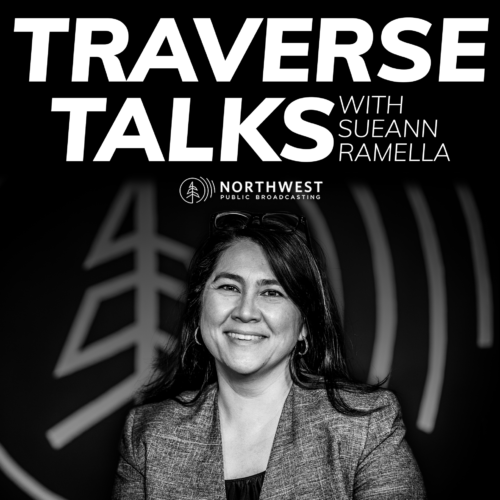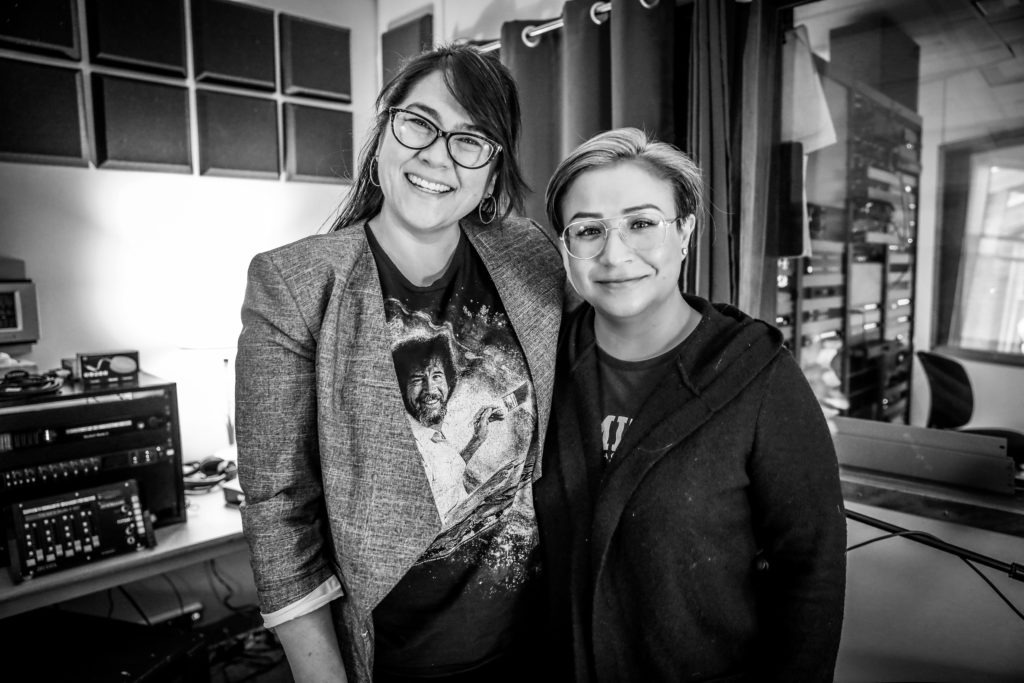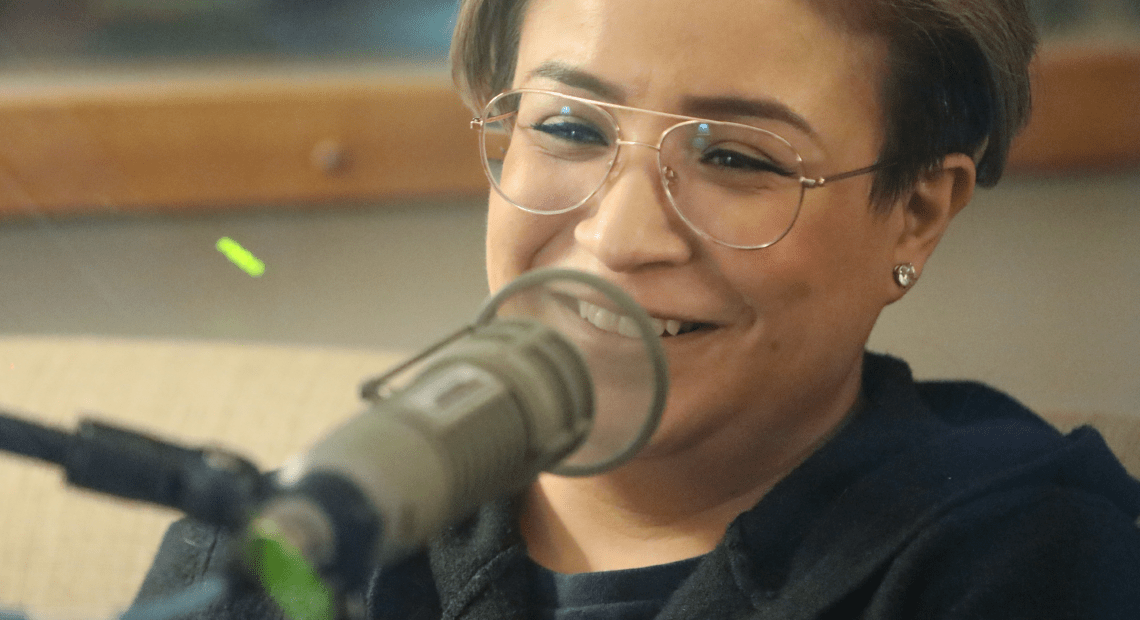
‘Traverse Talks’ Episode 6: Dior Vargas On Intersectionality And Mental Health

In this episode of Traverse Talks with Sueann Ramella, Latinx feminist and mental health activist Dior Vargas shares her history with mental health and why discussing the topic through an intersectional lens is so important. Listen to this episode below or stream Traverse Talks with Sueann Ramella, wherever you get your podcasts.
SUBSCRIBE: Spotify / Apple Podcasts / NPR One /
Listen
Conversation Highlights:
Helping Children Through Hardship:
Sueann Ramella: What would you tell parents to help guide them with a child that they may not even want to acknowledge maybe having some issues?
Dior Vargas: I think it’s extremely important to really start those conversations early on. I think for me, since it wasn’t something that we even discussed, I felt like I had no right to even bring that up, or I had no right to even feel what I was feeling. And I didn’t want to burden my family in any other way than what we were already going through. And so I just felt like it was something that I needed to take care of myself or find different ways to cope, which, you know, unfortunately those were the very unhealthy ways to cope. But I think a lot of times parents might be patronizing or may not be understanding what their kids are going through. And I can think, oh, well, you know, it’s not that big of a deal, but like really when you’re at that age, that’s the most important thing that’s happened to you. Like you don’t have all these years to look back on. And so everything carries so much weight. And so why not validate what they’re going through and carry that weight with them and make them feel like it’s okay for them to think that this is such a big deal because they will learn from it at some point, but just sit there with them, like in more ways than one.
Sueann: So I have two kids and I try to validate their feelings, but ride that line of when do you tell them you’re okay, it’s time to move on. And then when this is like a serious issue, are there signs that you would be able to speak to for parents or maybe a young adult who like, no, you really, you need some help.
Dior: I remember myself withdrawing from everything. I mean, even in third grade, I remember I stopped doing my homework. I just, you know, would get in trouble. I was just very stubborn and I didn’t really want to do anything. I, I very much kept to myself. And I think those, those are like huge warning signs. I think originally I was very upbeat and rambunctious and, uh, outgoing. And then I guess when, you know, my family broke apart, that’s really when I started turning into myself and, and being very introspective and just feeling everything inside and not being open about what I was going through.
Effective Self Care:
Sueann: You are giving a talk about self care and I feel as if it’s turning into a bit of a buzzword, so, what is self care?
Dior: Well, mainly for me it’s therapy because it’s a time where I can dedicate to myself to really think about some of the patterns I have or some of the things that I do. I’m currently working with an amazing therapist and we’re, we have a treatment plan. Like it, I’ve never had a treatment plan. So thorough with a therapist. I feel like I’m actually gaining these tools. And I have a time by which, you know, we want to kind of go back and see how I’ve been doing my certain symptoms and then specific interventions that we can take in order to kind of alleviate these symptoms. And so I’m, I’m feeling really happy about that because, you know, it’s not easy, you’re in therapy and you really have to come to terms with some of the things that you do and maybe things that you’re not proud of. Or maybe how I think, like I can always think about something negative over something positive. And so really confronting myself doing a lot of self reflection. I think that’s really hard work. And for me that self-care like, yeah, I can go get my nails done or get a massage, but it’s like, what am I actually doing to improve myself, to make myself better and live a better quality of life. So for me, it’s kind of like tough love and self care.
Reaching Out:
Sueann: What advice would you give to people who are listening, who may have someone in their life that they know is suffering from mental illness? How can we help those in our lives?
Dior: Creating a space where they feel like they can reach out to you just saying like, Hey, whether you’re going through something good or bad, just know that I’m here for you, giving them specific ways that they can reach out. So sometimes, you know, you say, Oh, just reach out. You know, whenever you’re going through this, but maybe saying like, Oh, here’s my cell number or here is how you can contact me or send me an email or whatever you feel comfortable doing. So giving those like specifics, those tangibles.
Sueann: It feels more real.
Dior: Because it seems like you actually thought of it.
Sueann: Yeah, like I really do want you to call me.
*Question and responses were edited for length and clarity.
Related Stories:

Captive Returns Home: The Story Of Wetxuuwíitin – ‘Traverse Talks’ Episode 42 – With Chairman Samuel Penney
Photo of Sam Penney recording Traverse Talks at the Nez Perce National Historic Park on March 10, 2022. Imagine a stranger took your family’s heirlooms and then offered you an
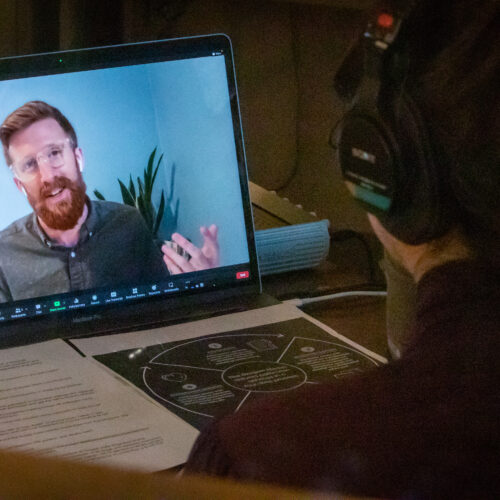
Psilocybin: Psychology, Policy and Possibilities – ‘Traverse Talks’ Episode 41 – With Sam Chapman
Sueann Ramella interviews Sam Chapman virtually on April 19, 2022. What do you really know about psilocybin, commonly known as magic mushrooms? Research on the substance has lagged behind in
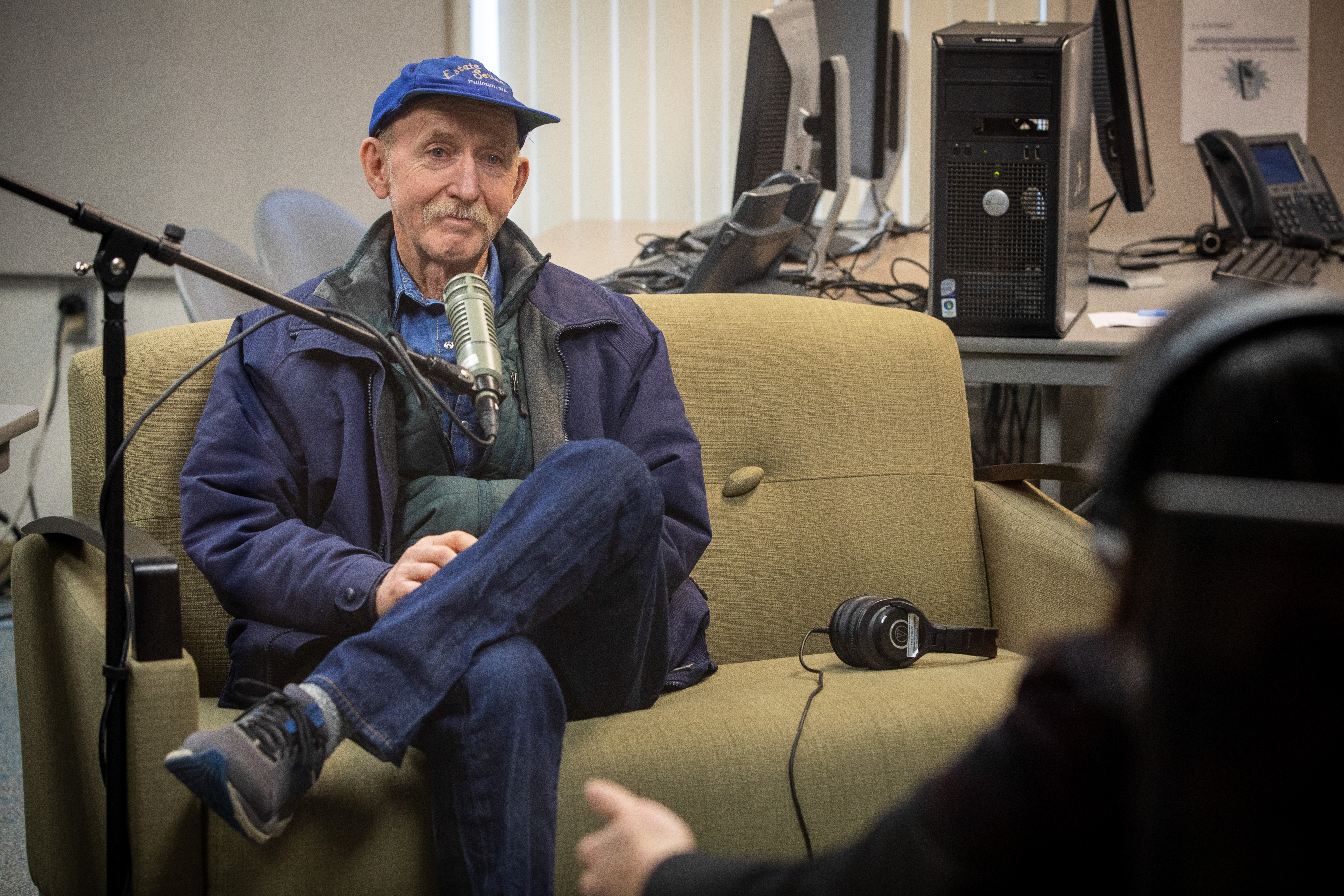
You Inherited A House Full Of Stuff. What’s Next? ‘Traverse Talks’ Episode 38 – With Estate Services Owner Rich Old
Rich Old recording this episode of Traverse Talks on March 3rd, 2022. Grieving the loss of a loved one is already hard enough. To make matters worse, many people have

